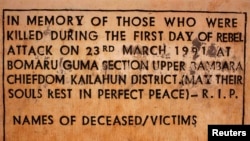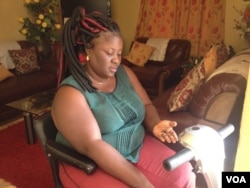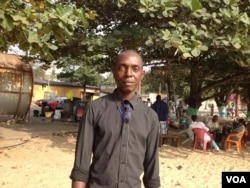Saturday marks a grim time in Sierra Leone’s history.
On Jan. 6, 1999, civil war officially arrived on the doorsteps of Freetown, Sierra Leone’s capital. Rebels invaded the city and began to torture, rape, amputate limbs and massacre the city’s residents.
Sierra Leone’s civil war originally broke out in 1991 but had been fought only in rural areas of the country. The rebels wanted to overthrow the All Peoples Congress government at the time.
After weeks of fighting in Freetown, the rebels were driven out of Freetown by members of Economic Community of West African States Monitoring Group (ECOMOG).
Memories still fresh
For Zainab Kamara, the memories of that time are still fresh in her mind.
“It was devastating, it was horrible,” she said, “machine guns (were going) … it was like hell … you couldn’t see anybody, everyone was indoors.”
Several days after the invasion, as fighting ensued, she was standing just outside the back door of her home when she was hit by a sniper’s bullet, leaving her paralyzed from the waist down. She was 14 years old at the time and has had to use an electric wheelchair since. To this day, she does not know who shot her or why. She kept the bullet that was removed by a doctor.
“I actually wanted to see the thing that caused me this pain, this terror,” she said. “I just looked at it and held it closely to myself, since then I have not parted with the bullet, because there are times when I find things difficult, when things become tough, I look at the bullet and tell myself if I survive this bullet, I can survive anything.”
50,000 dead
The country’s civil war, officially declared over in 2002, left at least 50,000 people dead and thousands more displaced.
As this anniversary unfolds, others in Sierra Leone are reflecting on what happened.
Frank Coker remembers going out to try to find food after being in his home for several days after the invasion.
“When I came out from my house,” he said, “I saw people carrying dead bodies around … taking them from one point to another, they (government soldiers) could kill someone and say you are a rebel, because everyone was panicking, there was no trust.”
Help healing needed
Sierra Leone’s Ministry of Social Welfare and Gender and Children’s Affairs acknowledges that Jan. 6 is significant and people should not forget what happened.
Department Minister Isata Kabia says the ministry is planning psycho-social counseling specifically for those affected by the war. She says that many believe people who endured the violence are OK and have moved on from the civil war, but that is not always the case. People are still traumatized, and the ministry is working to put in place a program for group therapy sessions. It will start as early as next week, she said.
“We have to help souls heal, because without individual souls healing, the nation will still be fragile,” she said. “It’s our responsibility and this, I think was a missed opportunity after the war, but it’s never too late.”
As for Kamara, she says despite what happened to her, she will keep moving forward. She has already started an organization that advocates for those with disabilities, who often face discrimination, she said.
“There are times I think about those who died, thank God I’m alive, I’m here to see this day and commemorate this day,” she said.
A thought perhaps many will have on this Jan. 6 anniversary.






